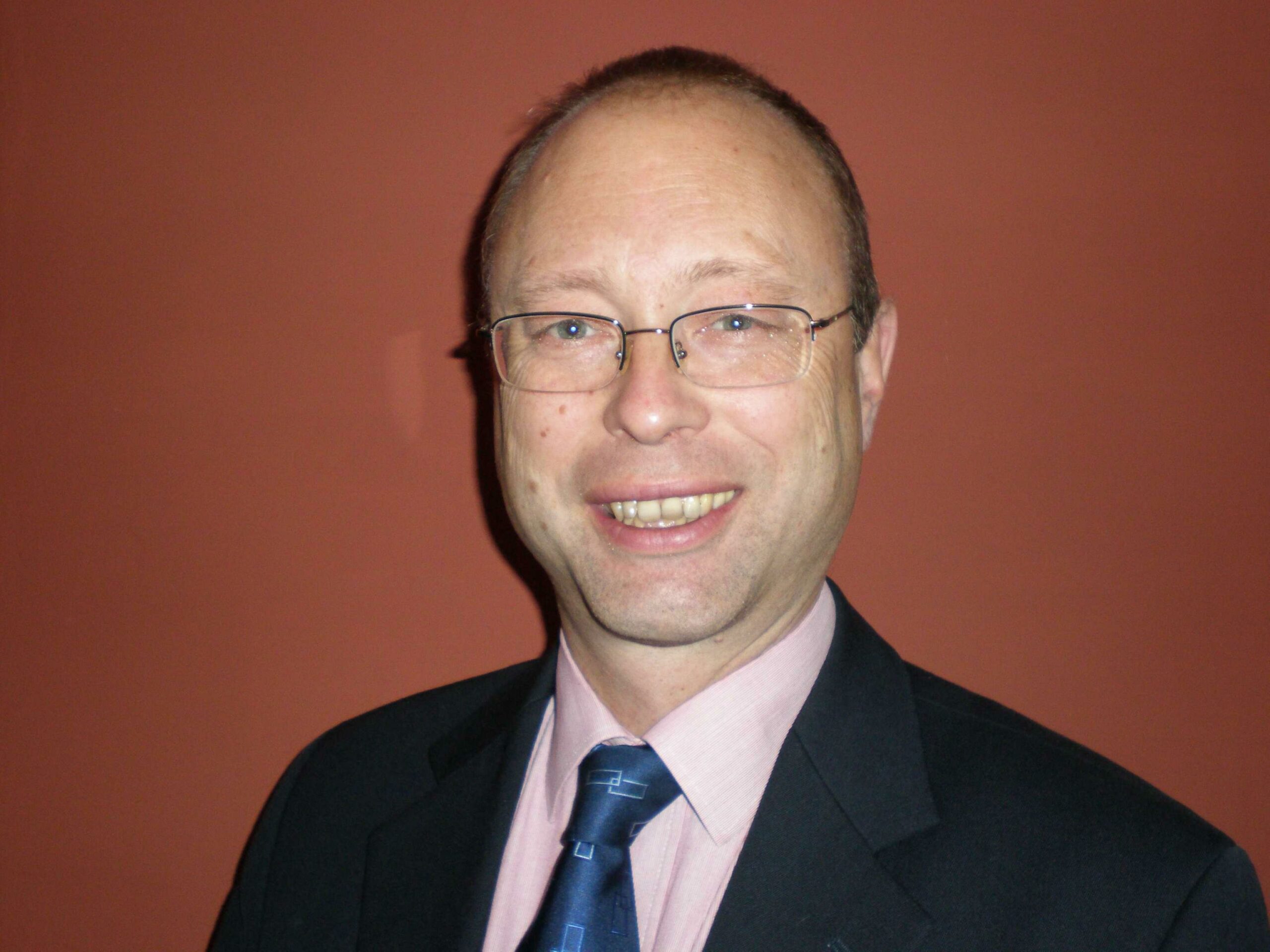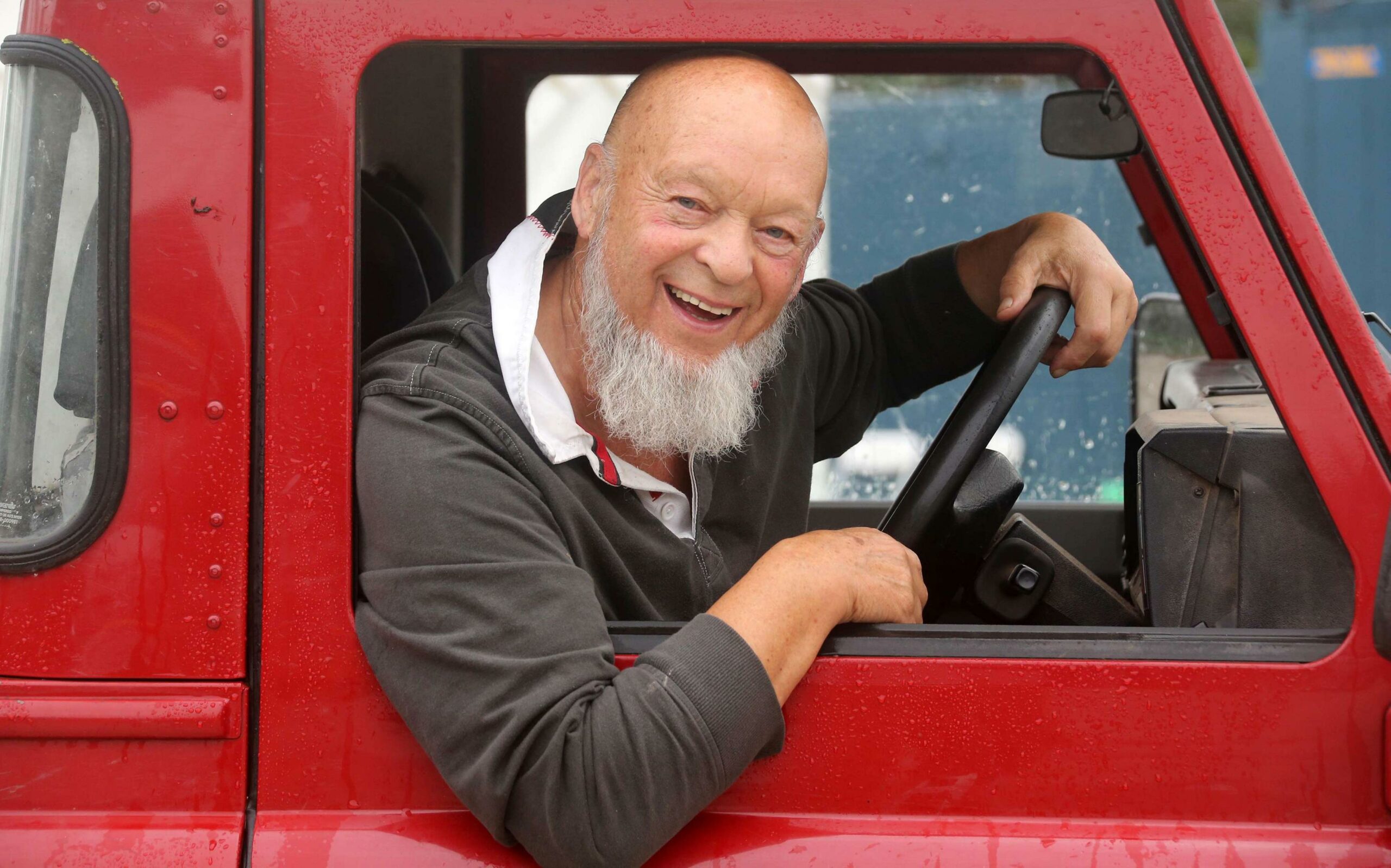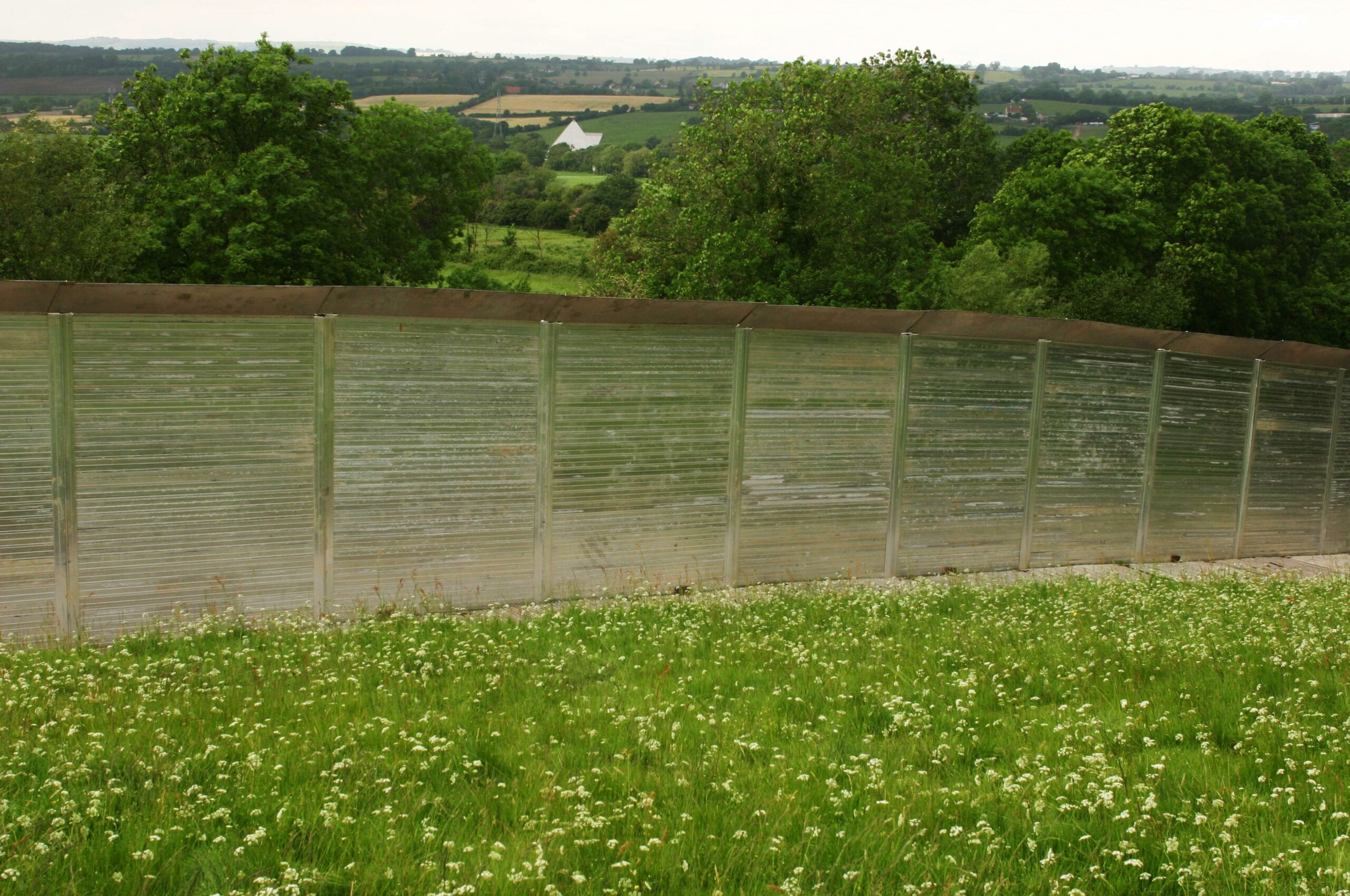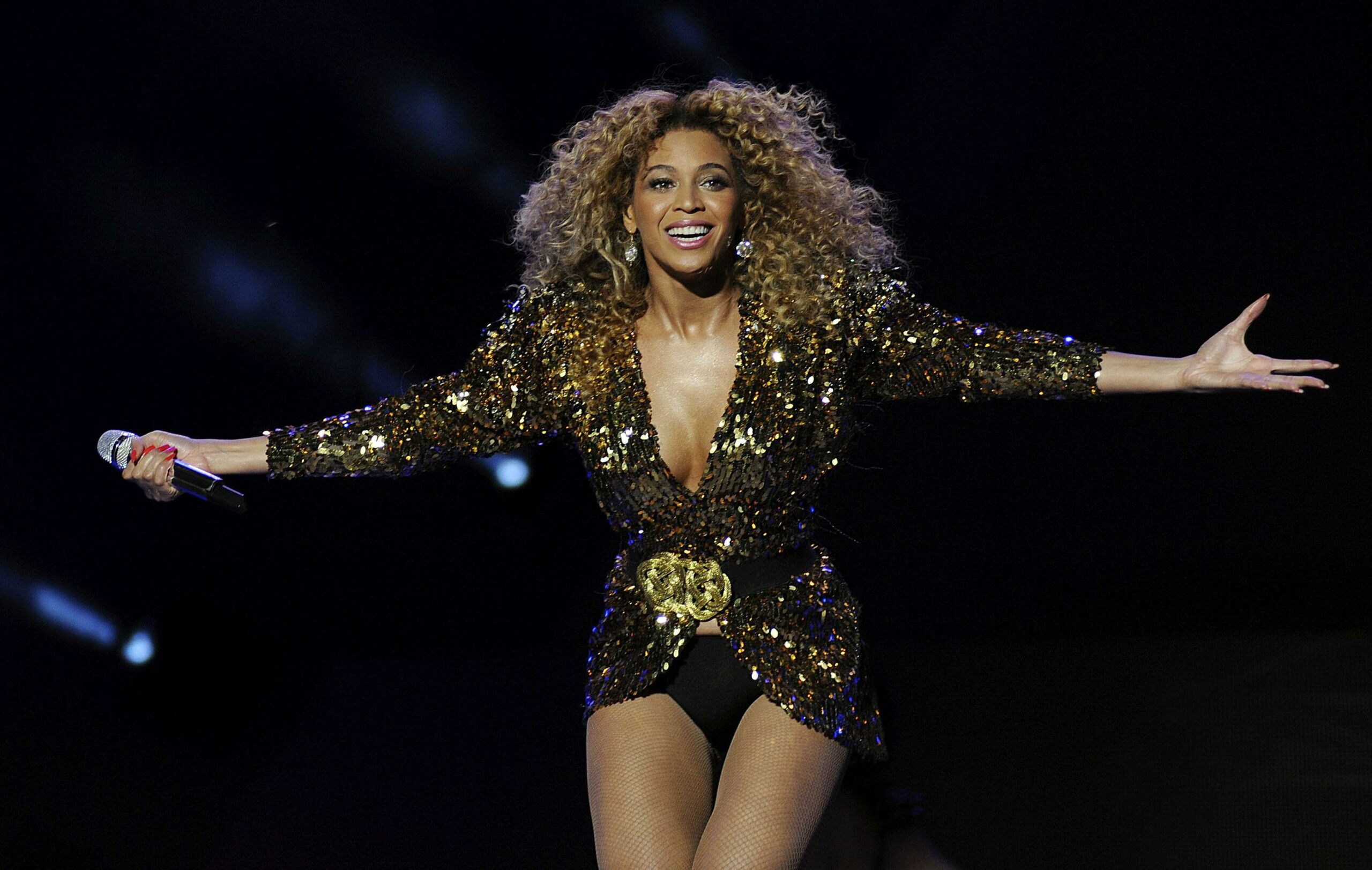Features
Meet Michael Eavis’ Lawyer: Q’s With Ben Challis, General Council For Glastonbury

– Ben Challis
General Counsel for Glastonbury
Ben Challis is Glastonbury’s general council, and as such, he’s currently engrossed in sorting through all of the artist contracts for the upcoming 50th anniversary, June 24-28.
Challis has always loved music and played in a punk band himself as a youth. After reading law at University and graduating, he got a holiday job doing research for the legendary Harvey Goldsmith.
After three months, when Challis was about to leave the office on his last day, Goldsmith hired him as his lawyer. Challis worked for Goldsmith on and off for six years, working for a TV company in-between, before setting up on his own.
He’s been working for Michael Eavis since the 1994 edition of Glastonbury, when he came in to handle the first TV broadcast of the event with Channel 4.
Challis says he’s “very selective” about who he works with. Aside from the world’s most famous festival, he also represents European festival association Yourope and Damon Albarn’s Africa Express, among others.
Pollstar caught up with Challis for our big Glastonbury 50th anniversary feature.
Pollstar: How did you end up working for Glastonbury?
Ben Challis: I met Michael Eavis in 1993. He had been approached by Channel 4, who was our original Glastonbury broadcaster. Michael was looking for someone to represent him, who knew something about the live music industry, but in particular knew something about TV coverage of live events, and when I was at Harvey’s I’d done a lot of that.
I worked on The Prince’s Trust Rock Galas, I worked on Eric Clapton shows, Shirley Bassey, lot’s of different shows we’d televised, so I had the background.
So, I went to see Michael, and ended up doing the first festival in 1994 for Michael with Channel 4, and sort of never left, basically, just stayed there.
So, I did 1994 and 1995 with Channel 4, which were glorious, sunny, hot years. The festival had a year off, and in 1997 the BBC came, it was a big mud year, and I’ve worked with the BBC on behalf of the festival ever since then.

– Glastonbury founder Michael Eavis
Sat behind the wheel of the Land Rover in which most of the first meeting with Ben Challis took place
Can you take us through the initial meeting with Michael Eavis?
Me and Michael disagree about this. He claims I met him in a Burger Bar in Leicester Square, which I didn’t. I went to the farm, down to Worthy Farm.
I met Michael, and he said, ‘can we just go for a quick drive, I’ve got to do something.’
So we get on this battered, old Land Rover and set off. He said, ‘I’ve got to meet one of the farm workers.’ We got down there, and he said, ‘I’ve just got to find a pipe.’
It was a farm worker standing there, Michael got out a Y-shaped copper rod for water divining, I am now staring at him as if the world has gone upside down.
He sets off with this water divining rod, and walks across the farm, and says, ‘I think I’ve found it.’
And this farm worker walks down past Michael steps on a manhole cover, and says, ‘well, that’s it, fabulous.’
And we drove off, and the whole time he kept saying, ‘I don’t really want a London lawyer.’
I actually lived in Cambridge at the time, where I kept chickens, had an orchard, so I said, ‘well, I’m not really a London lawyer. I’m a music industry lawyer, really.’ And I said, ‘I keep chickens, and I grow cherries, and I grow apples, and I grow plums.’
And he said, ‘okay.’ So, he drove around for a bit, and we chatted about what the TV might be and might not be, and what I could do for him, and what we would do with Channel 4, why he should trust me, and we got to the end of it.
Did you know you’d get the job?
I thought it had gone terribly, to be honest, I thought it was the worst not really interview, but chat we could have had, because mostly it was all like, ‘I don’t really want a lawyer anyways,’ and ‘what do I even want a lawyer for,’ and ‘we’re Glastonbury,’ and ‘I don’t know about this TV thing anyway.’
But Michael is a very, very smart man, and a very lovely man, but a very smart man. And right at the end he said, and I didn’t really take it in, he said, ‘next time you come down, bring me some eggs, and I swap some milk for you.’
So I got back in my car, and drove home, and thought, next time I come? Oh, that’s good news. Next time I come down.
There you go, we took it from there. So, in a couple of weeks I was working for him, and indeed, the next time I went to the farm I took him a dozen eggs down from my chickens. I didn’t take any milk back, because it would have gotten far too hot in the car. But I took some eggs down for him and started working.

Michael Putland/Getty Images – Nick Cave and Blixa Bargeld performing with Nick Cave and the Bad Seeds on the Other Stage at the Glastonbury Festival, June 25, 1994
It was the year Channel 4 recorded the first TV broadcast of Glastonbury.
Glastonbury was already famous by the time the first TV broadcast was recorded. What did the arrival of Channel 4 mean for the festival?
It was fabulously successful. Glastonbury was already a hugely popular festival. It raised it. The next year we had a huge number of people just turning up on site without tickets.
Michael would say, ‘this is your fault, Ben. It’s the TV that’s doing this.’ There’s obviously an element of truth in there.
Did you switch to the BBC to reach a bigger audience?
No, Channel 4 were actually great for us. It was pre-digital, so in those days you only had the one channel. They delivered us a decent audience, but the BBC did come with, I guess, the might of the BBC.
The guy who commissioned it at Channel 4, a guy called Waldemar Januszczak, who’s now an art critic, he’s on the telly sometimes, he’d left Channel 4, so our sort of main champion at Channel 4 had gone.
And the people we now work with at the BBC, Mark Cooper in particular, who’s the executive producer, he approached us and said, ‘look, BBC would love to do this, can we bid for it?,’ and they made a really attractive proposal.
We had two terrible years, both 1997 and 1998 were really, really muddy. It was before Michael installed the big drain through the middle of the farm. So, while we might have had more rain since, I don’t think we’ve ever had more mud. It really was horrendous.
We’ve stuck with the BBC, from traditional broadcast television through the start of digital and into the online world as well.

PYMCA/Universal Images Group via Getty Images – A view of the Pyramid stage behind the super fence
The fence, which was built in 2002, changed the game for Glastonbury, which had been struggled with too many people entering the site without buying tickets.
Apart from broadcasting the festival in 1994, what are other milestones that took it to another level?
The big change with the Super Fence [in 2002], when we had to improve our security. That was important. Some have criticized us for becoming too organized, too corporate. But you have to care about health and safety.
If people were injured or hurt, because we have too many people on site, that would be horrible.
You have to worry about everything, and it’s a big battle. Yeah, we want to be part of an alternative culture, it’s a great way for people to escape whatever worries they may have in the real world, but it has to be safe for them. When we [built the Super Fence] it made a difference.
Going digital was interesting, all of a sudden we could be on two or three screens simultaneously. We’re now on BBC One, BBC 2, BBC 3, BBC 4, on Radio Six Music and Radio 2, and a lot of the stuff is now streamed. 80, 90 bands a year are streamed.
Have you contemplated streaming on YouTube?
We have contemplated other partnerships, particularly non-UK, ex-UK, we’ve considered it, but it’s going to be a joint enterprise. It’s not just us, it’s not just the BBC, it involves the artists, and it involves their record labels.
So, when people say, ‘why haven’t you put out this full concert by so-and-so,’ well, it may be because we don’t want to, although we probably would, it’s often because an artist have their own thoughts about what they want to be doing with their careers. Of course we respect that.
We have considered it, it’s so complicated. We’ve also launched live cinema exhibitions both in the UK and other countries, but again, you need to work with your headliners first of all, you need to work with the other artists, record labels, publishers, just to see if you can make it work. And it’s not easy, I’ll tell you that now, it’s bloody complicated.
What’s the biggest area you handle for Glastonbury nowadays?
Artist contracts. And the other thing with Glastonbury is, and it sounds boringly legal, looking after our image, or our reputation.
We do have trademarks, which, when I got them, Michael said, ‘do we really need them?’ I said, ‘please Michael, everyone wants to associate with us. There’s a lot of people we don’t want to associate with, because they’re not ethical, they’re not moral, they’re exploitative,’ he said, ‘all right, fair enough.’
You must be saying ‘no’ to a lot of people.
Yes. I know, most festivals will bite your hand off, and a lot of people only consider money, but Michael and Emily [Eavis] and Nick [Dewey] will consider a range of things when looking at projects, and money’s not always the most important, in fact, it often isn’t the most important factor.
We do have sponsors, but we’ve always treated them as partners. They have to brig something to the festival. When I joined, the Guardian was our media partner, the BBC have come in as a media partner, we have EE, who are our communications partner, and we do have Carlsberg, who obviously provide the beer for our bars.
We have no overt branding on site. The BBC once tried to put a big logo up at the back of the farm. I went, ‘no, you can’t have it, we don’t want signs everywhere.’ They said, ‘but we’re the BBC, we’re the state broadcaster.’
‘Don’t care, we don’t a big sign up anywhere.’
None of our sponsors have signage, except for the beer taps, which will have the beer name on them, of course they do.
It’s very understated. I don’t think they’d ever consider a [headline sponsor]. Why would they do it? The whole joy of Glastonbury is, it’s such a different place, and that’s what I think makes it unique, still.
It is run as a non-profit, right?
In effect it is. Michael and Emily donate the profit away to the three main charities, Oxfam, Greenpeace and WaterAid, and some local charities, local to Somerset.

Jason Bryant – The Glastonbury festival site stretches across 1,000 acres
There’s hardly any branding to be seen on site.
You said money is not the most important thing, but it obviously is to a certain extent…
It is a business; it has to run as a business. I think the first three festivals, way before my time, it’s a matter of historical record that Michael was surviving in those days on what would have been a huge overdraft, because of the losses they made.
Promoting still remains a hugely risky business. We have the luxury now of selling out without announcing any artists, so you sort of know that your ticketing revenue is secure year-on-year – at the moment – and we’re not dependent on announcing a headliner, or a series of headliners, to sell tickets, which is always risky.
I’m not saying the public are fickle, but the public are fickle, and don’t always go to what you think they’ll go to.
They buy into Glastonbury, because it’s Glastonbury. That’s very important for the festival. One of the artists headlining was saying, ‘who do we talk to about marketing,’ I said, ‘we don’t have anybody,’ because, at the moment, we don’t have to market.
It gets more and more expensive to stage an event, and the inflation in costs is way more than the inflation on our ticket price. So margins get squeezed more and more every year, and it is tough for any festival now.
Limiting sponsorship money by offering less visibility makes it even tougher, I guess. You could raise ticket prices or the capacity…
This is a personal opinion. I don’t know how much more we could or would want to increase capacity. We let children in free now, up to 12 years old.
It’s a big festival, you don’t want it packed, people have got to be able to relax and enjoy themselves. The site is enormous. How big do you want to make it? I don’t know the answer.
Even if you increase the size of the festival, your infrastructure has to increase as well, and that costs money. More car parking spaces, more camping space, more toilets, more lighting, more security.
Costs have risen, particularly in the last ten years, dramatically. It’s not easy for any promoter. The only luxury we have is knowing we’ll sell out. Which is a luxury.
Have you been present at every event since 1994?
Yes. I’ve been through the glorious sunshine, and the mud, and the in-betweens.
Is it fair to say that the amount of legal issues you had to deal with increased with the festival’s size?
Not in my world particularly. With the television we started off covering only two stages, now we have in effect eight televised stages, which is huge for any festival.
Glastonbury is by far the biggest thing I do, and it’s a mainstay, and I do work all year round for the festival. It never stops. Even in a year off we’re still getting requests for clip licences, from broadcasters who want to use clips of performances, we have people making documentaries, we have bands putting out products, they might want a track or a whole set from Glastonbury to go out.
Dolly Parton’s last CD had the new album and a live CD from her Glastonbury set on it. Recently we did the David Bowie box set from Glastonbury, which is fabulous.
This year the big thing has been the book. It’s so beautiful, I love stroking it, which sounds silly.

Ian Gavan/Getty Images – Dolly Parton performed at Glastonbury in 2014
Her set was included with her 2016 album Pure & Simple
Has the paperwork gotten more?
Oh, it’s worse, far worse. It’s become americanized, and that just makes everything more and more difficult. Artist riders are like mini novels now. And a lot of them are fantasy-based as well, which is weird. They’re just completely ludicrous.
We do try and say too booking agents that we don’t just accept artist riders, they have to be agreed, even for big headliners. Can you send us something at least resembling a festival rider, knowing that you’re coming for a multi-artist, multi-venue place?
And then you get the normal theater or arena tour rider, which demands that they’re the only headliner, that they have three hours before they go on stage for sound checks.
It’s a festival. None of this going to happen.
They want ticket reports. It’s none of your business what our tickets cost. It’s only your business if and how we sell out. We’ll pay you, don’t worry, we’ll put on a great show for you.
So it is a lot of just crossing reams of paperwork out, saying, ‘all of this is irrelevant. What we need to work towards is putting on the best show possible for you as the artist, and for us as the festival, and for the TV cameras too.
It seems to work, but the paper work has certainly got worse.
What are some big points artists now want included in their contracts?
Force majeure has become more and more important, not least because of weather cancellations, but also things like volcanic eruptions, acts of terrorism, war. We live in an unpredictable, difficult world, particularly within Europe.
Force majerue’s been an ongoing and developing burden in contracts. Not burden, but it’s something that you have to look at and negotiate.
Insurance is very important now. Health and safety, we expect bands to be responsible, as we’re expected to be responsible. We expect bands to not behave in certain ways, and look after not just their own but the audiences health and safety.
Contracts have developed, and certain issues rise to prominence, and then maybe go away again for a bit. But they never go away completely.

Ian Gavan/Getty Images – Morrissey at Glastonbury Festival 2011
The outspoken vegan has accepted that Glastonbury-goers shouldn’t be forced to forgot their beloved meat and dairy products.
Can you name the most outrageous artist contract you’ve ever received?
Many of them are outrageous. We’re Glastonbury, we do our utmost to accommodate headliner requests, but you have to point out that we are a festival.
We had the Morrissey contract, which said that the whole site had to be vegetarian or vegan, I can’t remember, that there could be no meat products on sale anywhere.
Morrissey’s played the festival before, he’s fully aware it’s a dairy farm. We said, obviously, no. We’re more than happy to give you your own dressing room area, of course, all the catering will be vegan or vegetarian, which ever you want, we’d remove animal products of any sort, but we’re not shutting down all the burger vans. It’s a festival, and it’s a dairy farm as well.
Artists come with different demands, and different needs. Some we can accommodate. There was a clause in the Kenny Rogers rider, which said he must have a guest table – a table – in front of the stage. Really? It was designed, I suppose, for theater shows, or well-paying club shows, but certainly not what we do.
American acts, in particular, want to do Glastonbury, but may not have the actual knowledge of it. They know about it, but they don’t really know what it is. When Jay Z came in, and I have to swear there, but they were driving down to the festival site in a cab and saw the beginning of the site and were like, ‘oh man, that’s huge.’ Five minutes go buy, and they’re like, ‘is this still fucking Glastonbury? Oh my god, it’s enormous, my god. We haven’t even got anything like this in America.’
Springsteen was appalled that we had a curfew, but he’s always appalled by curfews. He loves playing so much, he’s fabulous.
We’ve had some big headliners over the years, and mostly they get it.
Beyoncé was fabulous. I became a Beyoncé fan when she did Glastonbury, because she put so much work into it.
Do you have a favourite topic of the law?
I’ve never been asked that. I don’t know. The one I wrote about most is intellectual property, so, copyright and, in particular, the trademark law. I do trademark law, I look after copyrights, because our archive is a collection of copyrights.
I don’t think I’ve got a favorite area. When I first started with Harvey Goldsmith I was doing a lot of contract work, and I still enjoy negotiating contracts. But so much now is just plowing through endless pages of nonsense.
Any area of the law you would never work in?
I’m not a litigator, and I wouldn’t want to be a litigator. I really don’t want to got to court and have to fight court cases. For ten years I was a magistrate, so I sat in court as a low-level judge in criminal cases, but I wouldn’t want to work in criminal law. I certainly wouldn’t want to work in family law, having people fighting each other over family assets and children – I can’t think of anything worse than that.
So, I’m quite happy doing my bit, really. I have picked my favorite area of the law: it’s the weird bundle I do now for Glastonbury and my other clients.

Tabatha Fireman/Redferns – Beyoncé headlined Glastonbury in 2011
That year, Ben Challis became a fan.
Can you recall a few memorable concert experiences at Glastonbury?
The first two years always stick to my mind. It was so new, and it was also brit pop. The first year I did, you had very early in their career Blur, Oasis and Pulp. They all came back in later years huge stars, and did massive shows.
One I love was The Levellers in [1994]. People were starting to protest, becoming more aware of politics again. They just did this incredible show on the Pyramid Stage. We had our TV camera in the mixing tower, and the whole ground was shaking, because the audience was dancing and jumping up and down, and the audience was steaming in this night time chill, and it was just awesome.
I’ve enjoyed The Killers particularly this year just gone, they put on a marvellous show, and Stormzy as well. To be honest, I missed The Cure, because I had to drive someone somewhere, but I saw it on TV, and I wish I had seen it, that looked awesome. We’ve all forgotten how much we love Robert Smith.
Over the years what I did is pick random tents and go and see random things, and enjoy them just as much as I would enjoy a massive headliner.
Do you have a favorite spot on site?
The Bimble Inn. It’s a small beer tent near the park, and I will always go there at least once a year and meet friends there.
My favorite stage, before you ask, is [the John Peel Stage]. I don’t dislike the Pyramid Stage and other hospitality areas, but it’s not my favorite.

OLI SCARFF/AFP via Getty Images – Revellers listen to the band Age Of Glass perform in the Bimble Inn
The small venue at Glastonbury is Ben Challis’ favorite spot on site
Can you sum up what Glastonbury means to you personally, after being involved with it for 26 years?
It’s still the best party in the world. I took my godson last year, and made time to walk across the Green Fields, I went to the Healing Fields, and it’s like, ‘wow, this is the real festival.’
I’m so glad I did it. You forget that sometimes, because I tend to get focused around the stages I’m working on, which are the televised staged mostly. But it honestly really is just such a great party.